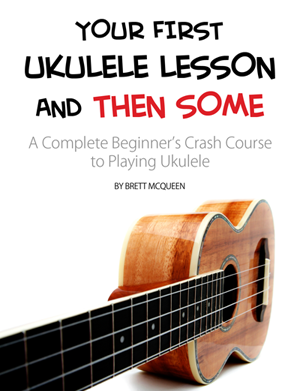In my 30 years of playing music, there’s one trait that’s helped me practice ukulele and improve the most as a musician.
It’s a trait I wish I had when I first started because it would have prevented me from giving up when things felt difficult. This trait has helped me so much so that I…
Lose track of the time when I practice.
Have more fun when I practice.
And, have more patience for myself when I can’t perform.
Yesterday, I was working on practicing a particularly difficult bluegrass solo on guitar by the great flatpicker Tony Rice (I’m a lifelong ukulele player but also play guitar and piano!). The solo is a short, lightning fast 8-bar passage in the song Nine Pound Hammer, and for me, it’s just… hard.
Every time I step on the gas it falls apart.
I fail.
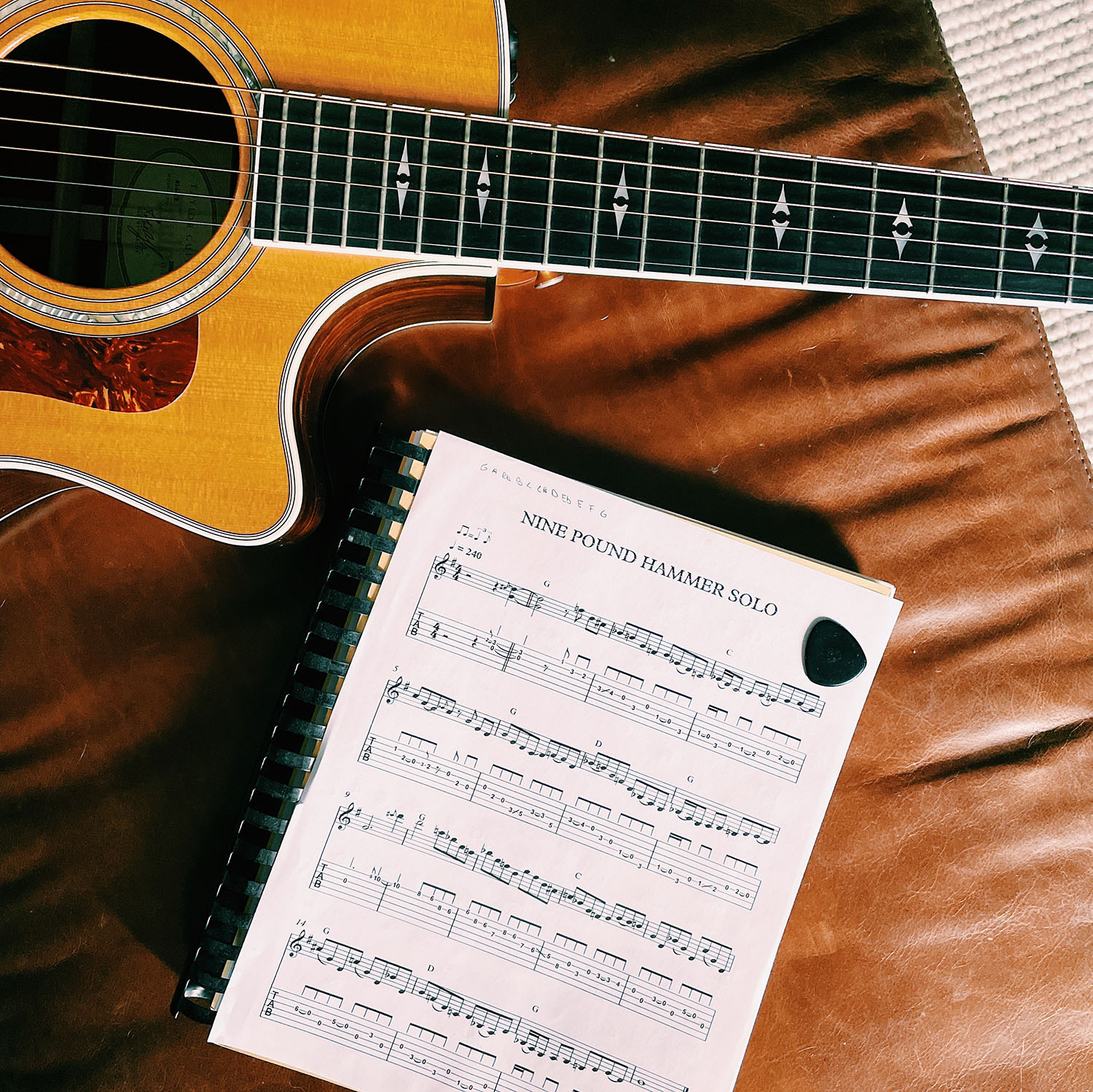
I practiced this solo for nearly two hours yesterday without taking a break, and you know what?
I had the time of my life.
In fact, I’ve been working on this solo for almost a year and I get excited every time I sit down.
And it got me thinking, why is this so much fun for me to keep failing?
For me, the answer is simple.
How to Lose Track of Time When You Practice Ukulele
If there’s one thing you need to make practice fun and the time fly by it’s…
Curiosity.
Compare two ukulele players who sit down to practice…
The first is Bob, and when he goes to practice, he has the goal of learning to play the Disney song Lava for his granddaughter in the span of an hour on a Sunday afternoon. Soon into the practice session he’s running into trouble changing between chords without hesitating or pausing and getting the notes to ring out. It’s frustrating, so he starts saying to himself…
“Your fingers are too big.”
“You aren’t ready for this.”
“You’ll never be able to learn this song.”
I think we’ve all been there. Some practice sessions are like this… defeating.
But there is another option…
Alice, on the other hand, sits down to learn a solo arpeggio piece with a lot of changes up and down the fretboard and she gets to a section of the song where the chord position is really difficult and isn’t able to get all the notes to ring out. But she says to herself…
“Okay, how can I get curious about this?”
So instead of making statements, she starts asking what I like to call the Curious Question, which starts with the words:
“What if I…”
So she starts asking…
“What if I… tried this finger instead?”
“What if I… held the ukulele like this?”
“What if I… tried to position in this way?”
This powerful question “what if I?” shifts you from frustration to a place of creativity.
If you want to be a more creative musician, it starts with your curiosity!
One Powerful Exercise to Develop Curiosity
Now, don’t be mistaken…
This is not “just think positive”… thinking positive is really difficult when we feel frustrated about the lack of progress we are facing in a given practice session.
In fact, you can feel all that frustration about wanting to be better, farther along, etc., but where a lot of people make the mistake is stopping the session right there.
We need something to give us a push which is why we need a powerful question.
Try this exercise next time you find yourself really frustrated in a practice session and want to quit, or even better, start your practice session this way!
I call it the What If I Exercise and here’s a way you can implement it:
Step #1: Pick a chord any chord
For example, you might pick a G major chord, played in a standard way like this.
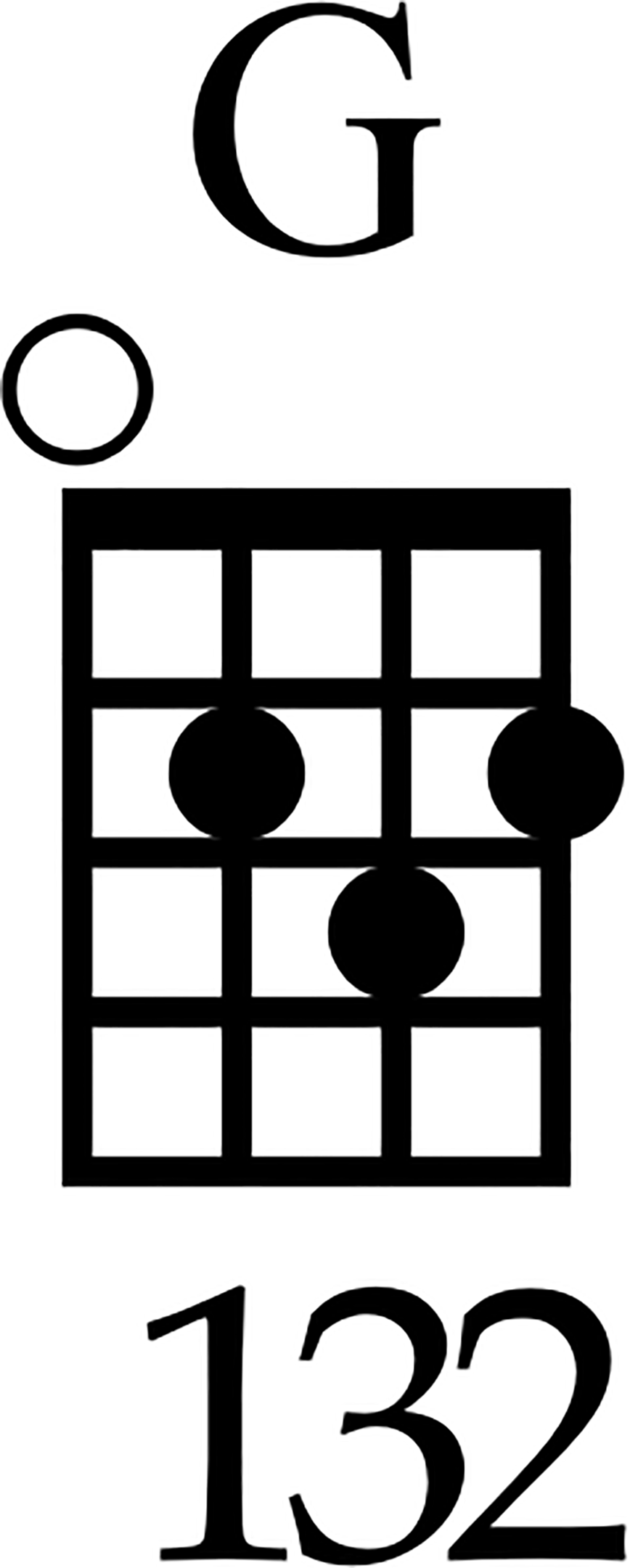
Once you have that chord…
Step #2: Ask yourself the question
Now, let’s say you’re having difficulties playing or switching to and from this chord.
So ask yourself the question, “What if I… play this chord using a different finger position?”
After some thought, maybe you arrive on this alternative finger position where you place the middle finger on the 2nd fret of the C-string, little finger on the 3rd fret of the E-string, ring finger on the 2nd fret of the bottom A-string, letting the top g-string ring open.
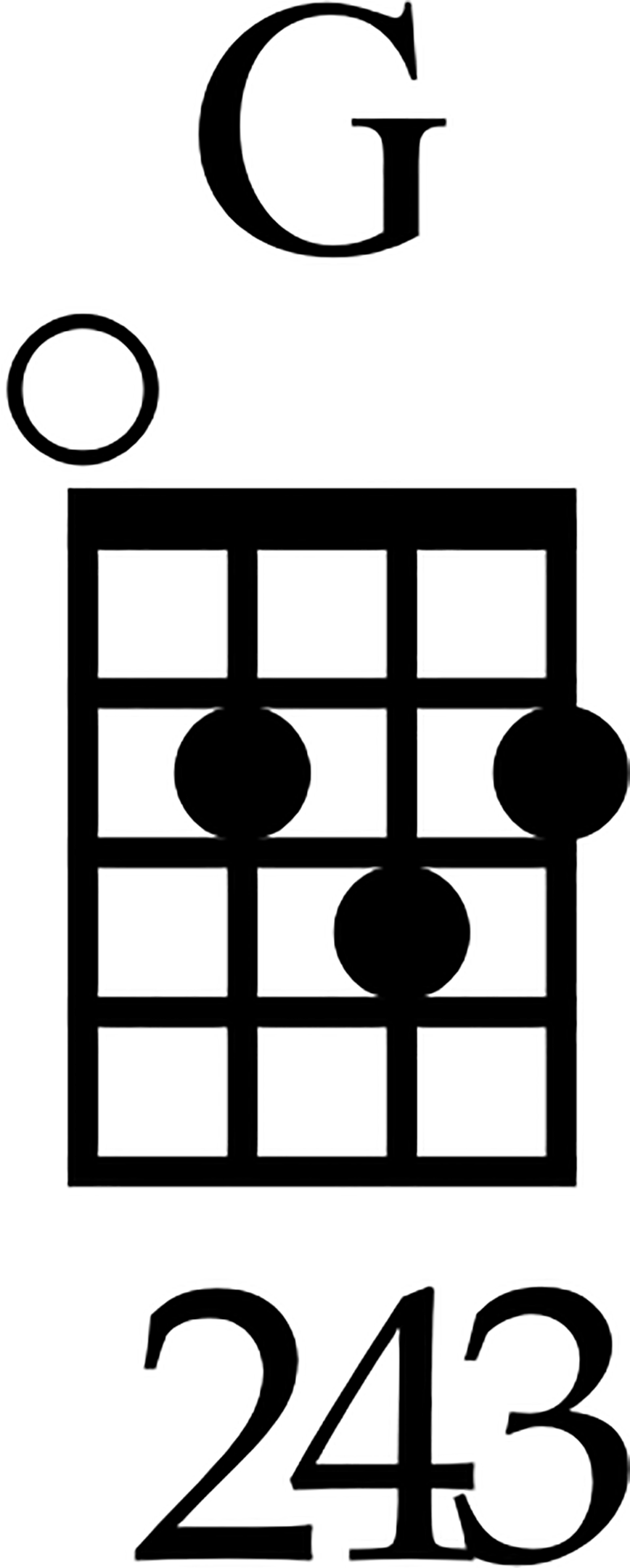
This is tapping into your curiosity and creativity!
Step #3: Check in and ask yourself the question again
Sometimes the first idea isn’t the one that works, so ask the question again…
“What if I… play this chord using a different finger position?”
So you think some more, and you come up with a whole new position!
This time you press or barre the index finger on the bottom three strings at the 2nd fret and place the middle finger on the 3rd fret of the E-string, letting the top g-string ring open.
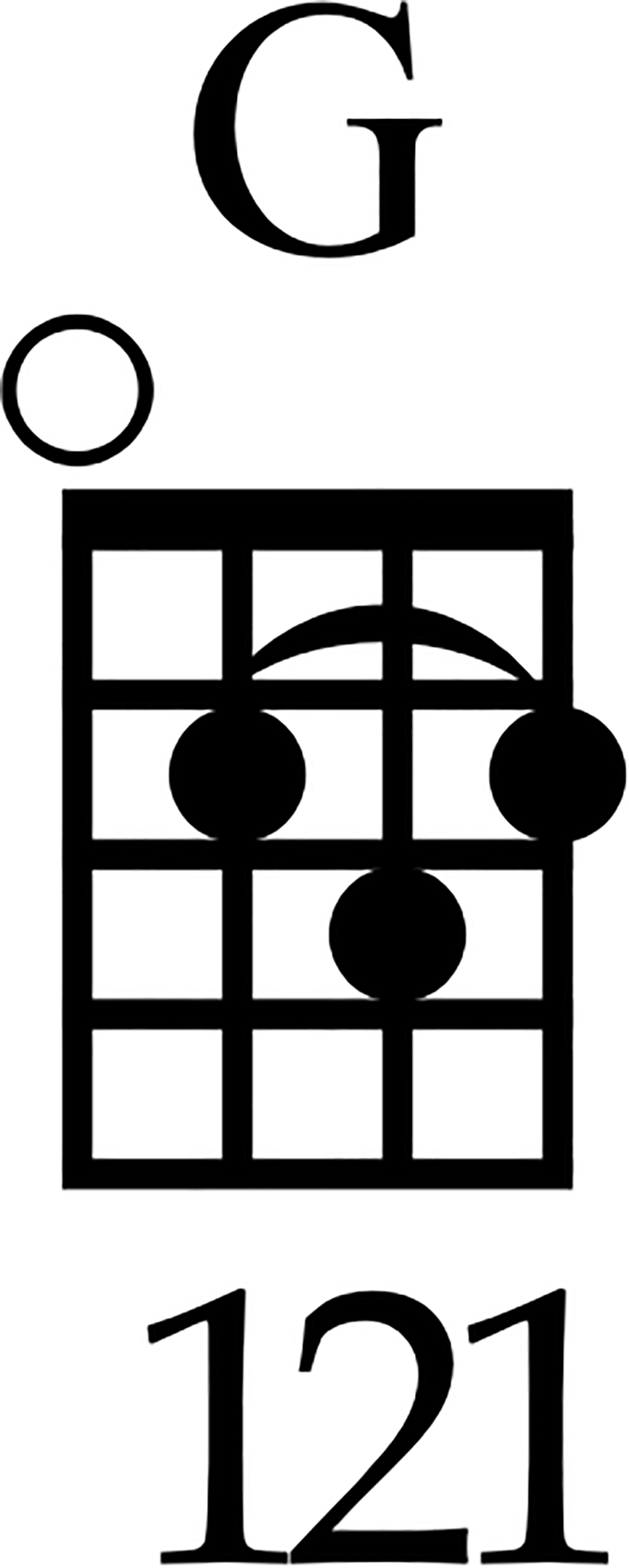
Nice work.
This is how you get curious when you practice.
The same idea can be applied to any challenge that comes up in practice, like with the fretting hand, picking hand, or strumming hand.
When you do this exercise, 3 big benefits will emerge as you practice…
- You’ll lose track of the time and have more fun. This means you end up putting in more reps which compounds into more developed skills. You’re excited about what you might discover next and you let any frustration you feel fuel you a step farther.
- You’ll have more patience. Practice is about finding your limit but having a consistent attitude of curiosity allows you to see improvement over time… like, you know, when you come back the next day and things just feel a little easier than they did the day before.
- You’ll discover solutions to play that make you become a better ukulele player. By leveraging curiosity, you spur on your creativity to find a solution that works for you. When you’re the one who finds the solution, that skill becomes embedded in who you are as a musician.
Frustration and failure in practice is normal, so use your curiosity to fuel you to keep going!
Tell me in a comment below:
How do you work through failure and frustration in your own practice?
I read every response!
Do You Need Help Becoming a Better Ukulele Player?
I’m here to help you improve your skills on ukulele.
The best way for me to help you is to join me in the Strumming Tricks course where over 10,000 students have learned with me to make the music they love on ukulele.
I designed the course to be the most complete step-by-step method for complete beginners.
With my help, you know exactly what to practice to become a better ukulele player every time you sit down.

